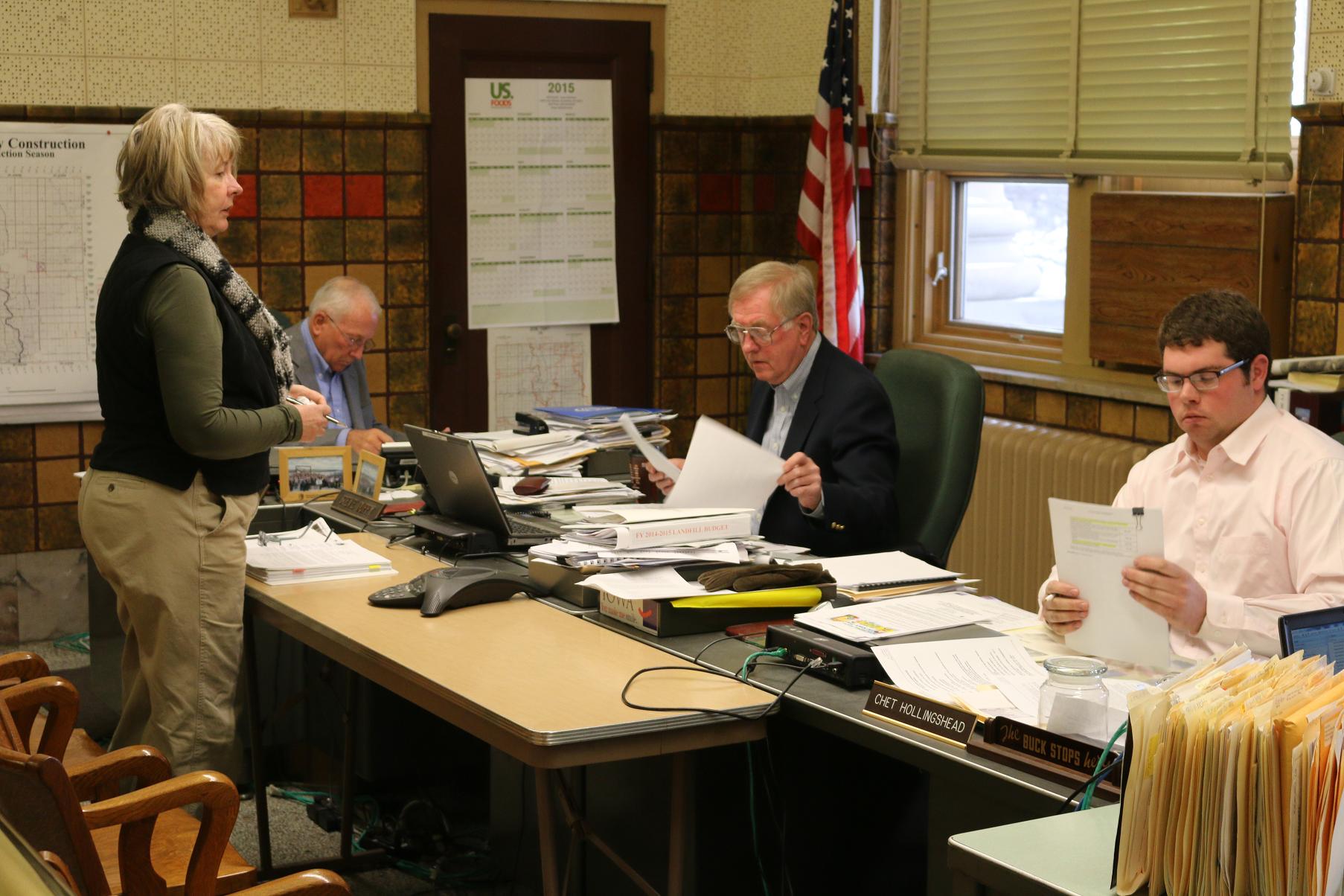
BOONE — The three-member Boone County Board of Supervisors voted unanimously Wednesday to recommend approving a construction permit for Eric and Emily Crosman, Ogden hog producers who are seeking to double the size of their livestock confinement or CAFO (pronounced kay-foe), a concentrated animal feeding operation.
In a 30-minute public hearing, the supervisors turned a deaf ear to objections raised by the CAFO’s nearest neighbor and by others concerned about the expansion’s impact on public health and the environment and instead followed the recommendations of the Boone County Master Matrix Review Committee and Boone County Planning and Development Administrator Sandra Monck.
Monck and the three-person matrix committee met Feb. 17 and voted to recommend the supervisors approve the Crosman application. The supervisors’ recommendation will now accompany the application to the offices of the Iowa Department of Natural Resources (DNR), which has the ultimate authority to regulate CAFOs and issue permits.
Wednesday’s public hearing at the Boone County Courthouse was at times emotional. Speakers were each allowed two minutes to express their opinions about the proposed CAFO expansion.
“I beg you to give this more study. Please. You’re impacting the lives of my family and many other families.”
“I beg you to give this more study,” said Sally Black, whose front door is barely 2,000 feet from the Crosman CAFO. “Please. You’re impacting the lives of my family and many other families,” she said.
Black said she and her husband and small child have tried to adjust to the Crosman’s first CAFO, a 2,480-head hog confinement built in 2012. She said a second Crosman CAFO–and the likely doubling of the stench and flies of the first–will make life on her acreage unbearable.
Jan Danilson of Woodward, a member of the Boone County Planning and Zoning Commission, raised several detailed technical objections about the accuracy of the Crosman CAFO application. She noted the county’s sanitarian and engineer had yet to visit the site and urged the supervisors to withhold approval pending a thorough review of the application.
The Crosman confinement lies near Beaver Creek in the Des Moines River watershed. David Hance of the Raccoon River Watershed Association urged the supervisors to stop further CAFO construction in Boone County.
The general threat CAFOs pose to public health, water quality, property values and long-term agricultural sustainability was the common theme of the statements made by other opponents of the Crosman CAFO who spoke at the hearing. The dozen opponents included retired DNR officials, academics, farmers and several members of citizen-action groups in Boone and Dallas counties.
According to DNR records, Boone County is home to about 107,000 confined swine on 37 CAFOs. The human population of Boone County in 2010 was 26,000. By contrast, Dallas County has about 75,000 people and 86,000 pigs on 26 CAFOs.
A number of supporters of the Crosman CAFO also attended the public hearing, including the Crosmans’ personal friends, fellow contract hog producers and the Boone County Farm Bureau.
Kent Mowrer of Ogden, Bret Pierce of Woodward and Kevin Westrum of Boone each spoke to the excellence of Crosman’s character as a person and praised the virtues of modern methods of livestock production.
“Eric and I played sports together at Ogden High School,” Mowrer said, “and I know him for a responsible farmer and neighbor.”
Crosman also had support at the hearing from several livestock-industry heavyweights, such as Brent Rastetter, whose Ames-based company, Quality Ag, is one of the foremost builders of hog confinement structures. Rastetter is also a member of the Iowa Environmental Protection Commission, which oversees the DNR and hears appeals from DNR rulings.
Another pork-industry powerhouse supporting Crosman was Pinnacle, an Iowa Falls company specializing in preparing manure management plans for CAFO applications. Brian Ritland, director of agronomic services for Pinnacle, answered most of the technical questions raised at the hearing about Crosman’s master matrix score.
Ritland wrote Crosman’s application and has steered many of Boone County’s CAFOs through the DNR application process. He is intimately familiar with the master matrix.
The master matrix is a scoring system devised in 2004 by the DNR that has been adopted by 88 of Iowa’s 99 county governments. The matrix system awards points to a proposed CAFO based on its impact on air and water resources and its effects on the quality of community life. For example, a CAFO earns more points the farther away it is built from a river or creek or from a church or school.
Placement is the most crucial factor in a master matrix score, with almost equal emphasis placed on the design of a CAFO’s manure containment structure and on the farmer’s plans for disposing of the manure.
According to the DNR, “Counties that adopt the master matrix can provide more input to producers on site selection, the proposed structures and proposed facility management. While all counties may submit comments to the DNR during the review process for permit applications, counties that adopt the master matrix can also appeal approval of a preliminary permit to the state Environmental Protection Commission.”
There are 880 total points in the master matrix, and they are spread over 44 questions. An application must earn a score of at least 50 percent, or 440 total points, in order to pass. There are also minimum point requirements for each of the questions’ three categories: air, water and community.
Crosman’s application, as prepared by Pinnacle and presented first to the Boone County Master Matrix Review Committee and then the Boone County Supervisors, scored 500 or 57 percent.
In her two minutes of public comments, Danilson raised doubts about the accuracy of Crosman’s master matrix score and said it should be reduced by 160 points. Danilson submitted her written comments to the supervisors, who appeared to disregard them.
Stacy Hartmann of rural Minburn, who chairs a group called Dallas County Farmers and Neighbors, called the permitting process “farcical” and urged the supervisors to exercise their very limited powers and withhold approval from the Crosman application.
“Contrary to what the CAFO owners are saying here today, there is nothing ‘natural’ about confining thousands of animals on cement over millions of gallons of manure,” Hartmann said.
Joe Monahan of rural Boone, representing a group called Boone Farmers and Neighbors, called on the supervisors to declare a moratorium on further CAFO construction in Boone County.
Boone County Auditor Phil Meier said the county passed a moratorium law eight years ago but the Iowa courts struck it down.
“Times have changed and views have changed,” Monahan said. “Boone County should follow the lead of Dickinson County and put a hold on further CAFO construction.”
Boone County Supervisors Chet Hollingshead, Tom Foster and Stephen Duffy listened silently to the public commentary. Before closing the public hearing, Hollingshead, who chairs the board of supervisors, said he would set aside his chairmanship for the moment and speak as a simple citizen.
“I am a hog farmer,” he said. “I own CAFOs. My 92-year-old grandmother has been living next to one for a long time and if they were a danger to public health, then my 92-year-old grandmother should be dead,” Hollingshead said.
Hartmann accused Hollingshead of mocking the CAFO opponents and undermining the legitimacy of the county’s entire review process.
Monck said CAFO opponents should take their concerns to their state legislators and press for change at the level of state government. “We’re doing what we can here in Boone County,” Monck said. “The supervisors didn’t even have to hold a public hearing,” she said, “but they held it in order to give you people a chance to be heard.”
Supervisor Duffy agreed with Monck, advising opponents to “take your arguments to the lawmakers.” He said agriculture is “a driver of the state’s economy. To ignore agriculture would be a big mistake.”
Duffy said the DNR rules should be “tweaked to become more informational.”
Hollingshead then declared he would temporarily resign the chair in order to move that the board approve the Crosman application. Duffy seconded the motion, and the resolution was carried unanimously.
After the meeting, Crosman and his supporters gathered outside the conference room.
“I wasn’t surprised by the amount of opposition,” Crosman said. “Some of their concerns might be valid, but we’re not breaking any laws,” he said.
Danilson said she was frustrated by the supervisors’ unwillingness to proceed more cautiously. “They treat approval like a foregone conclusion,” she said. “Instead of doing due diligence, they act more like a rubber stamp.”










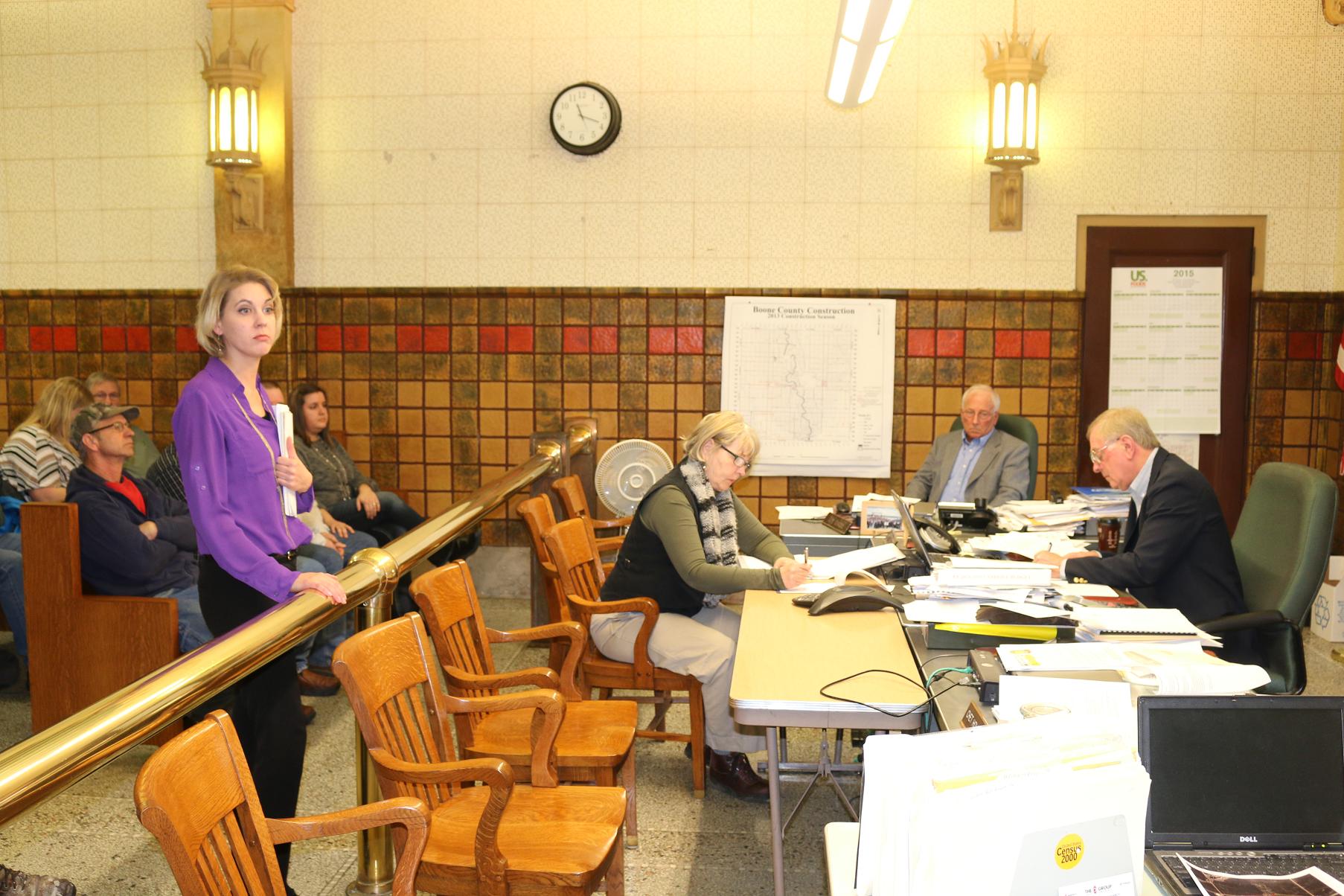
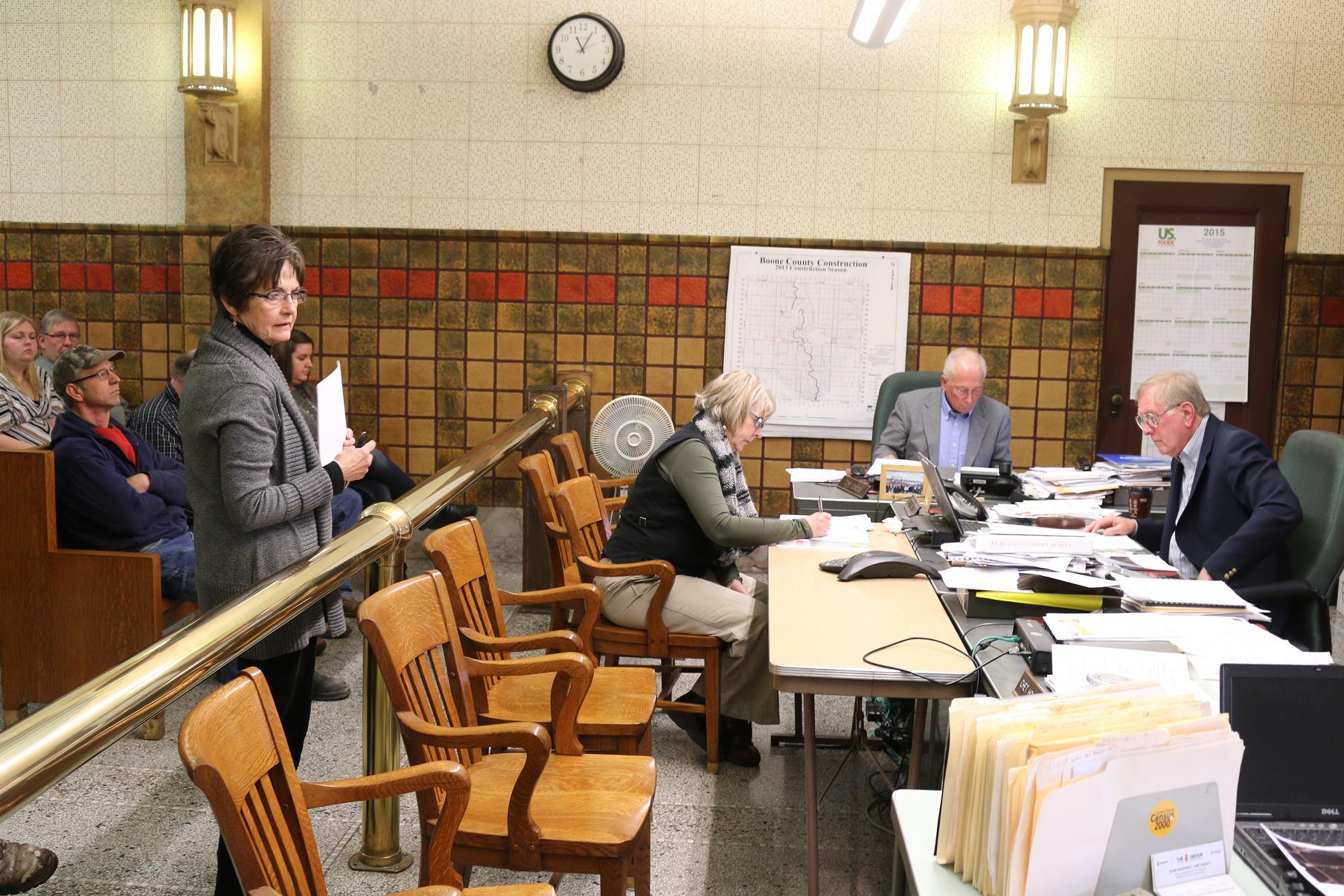
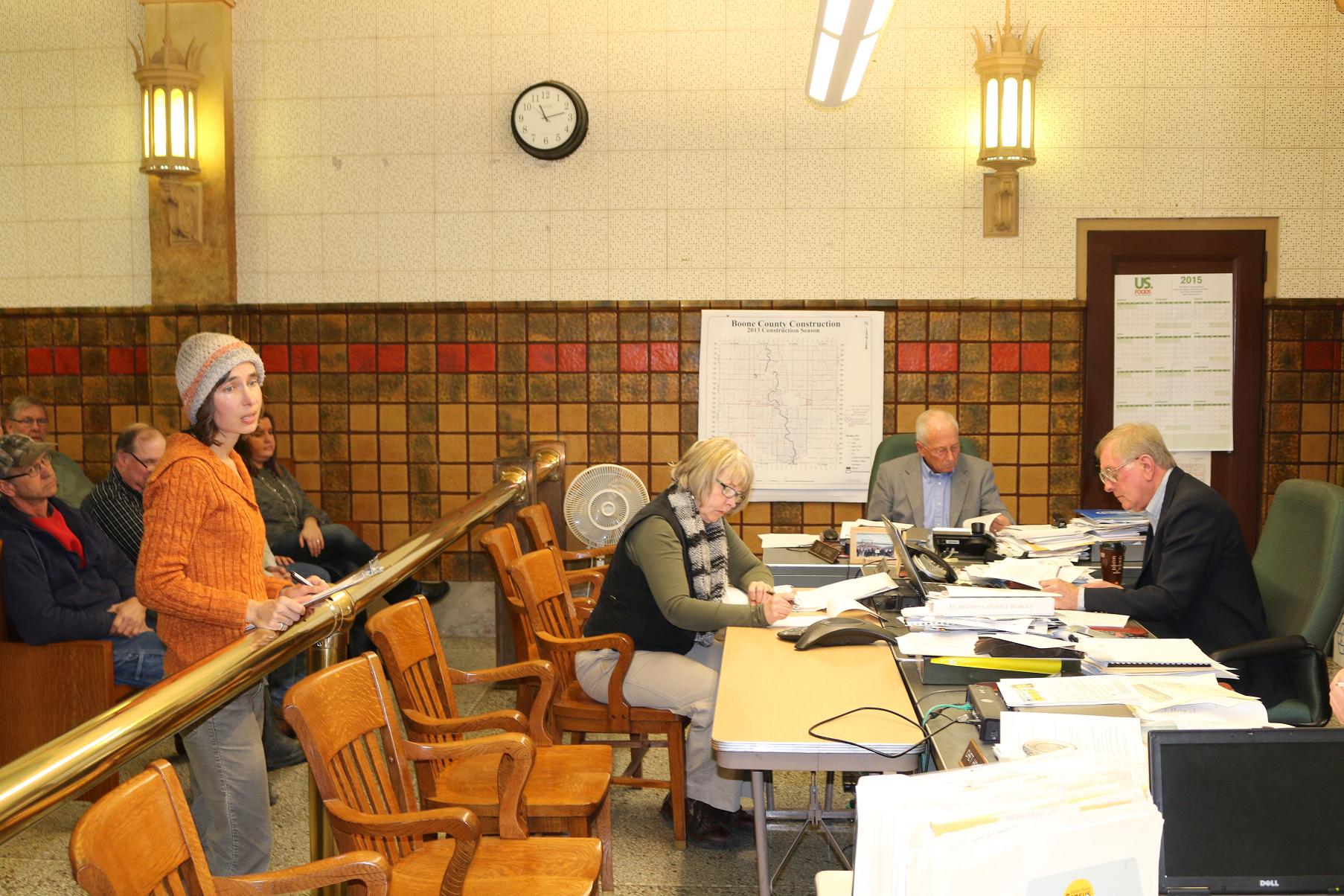
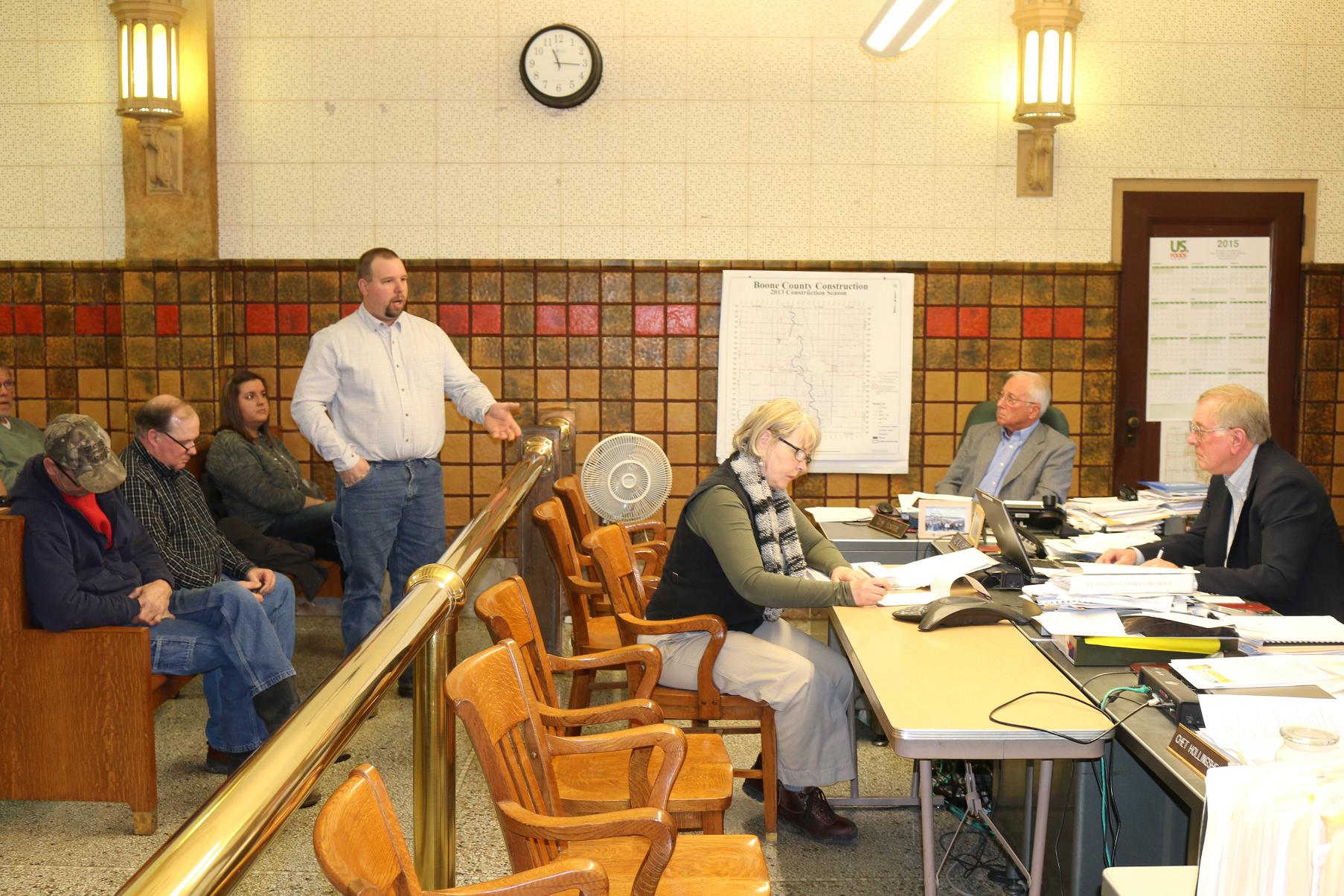
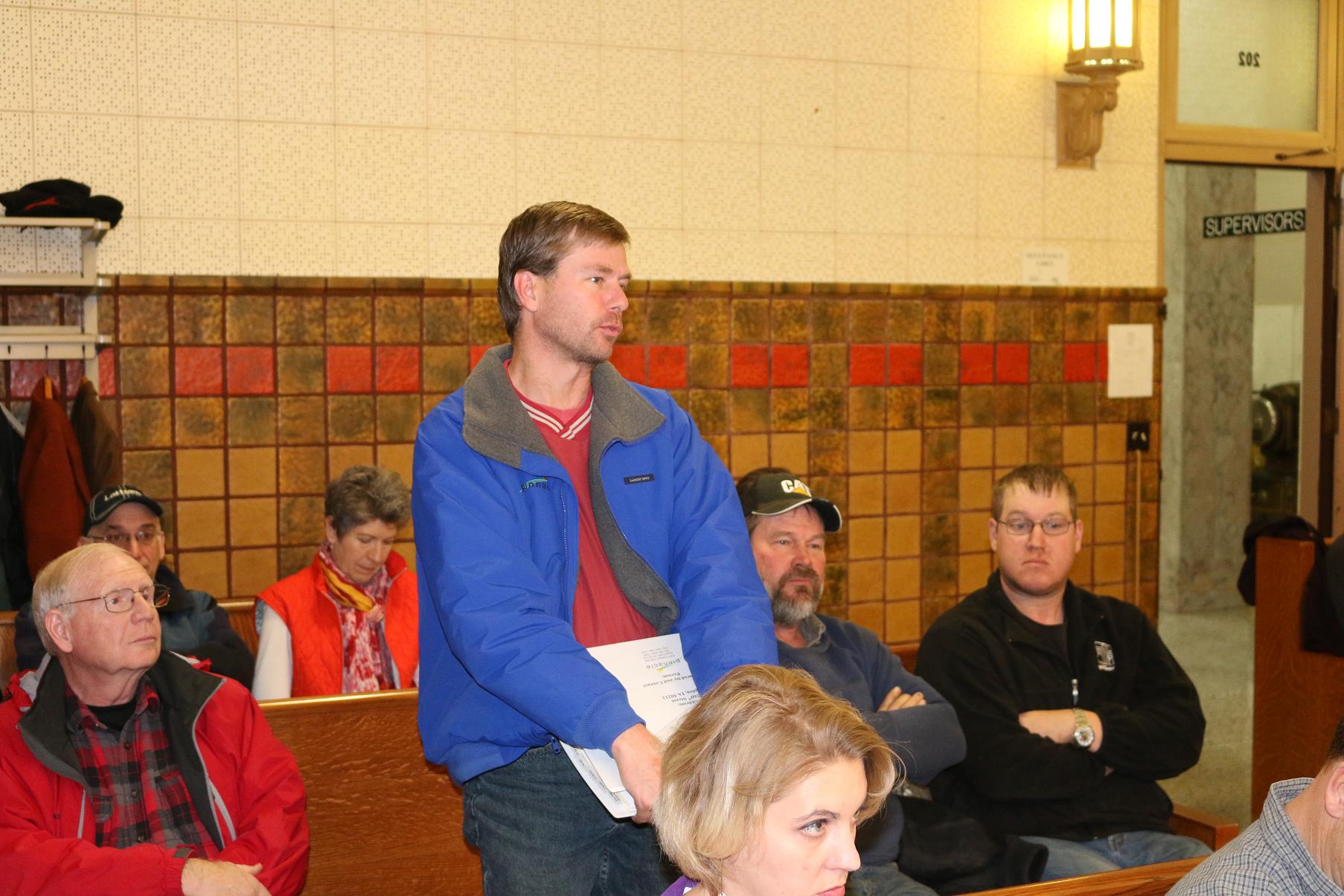
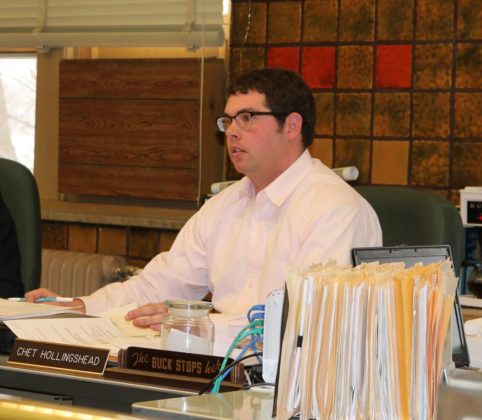
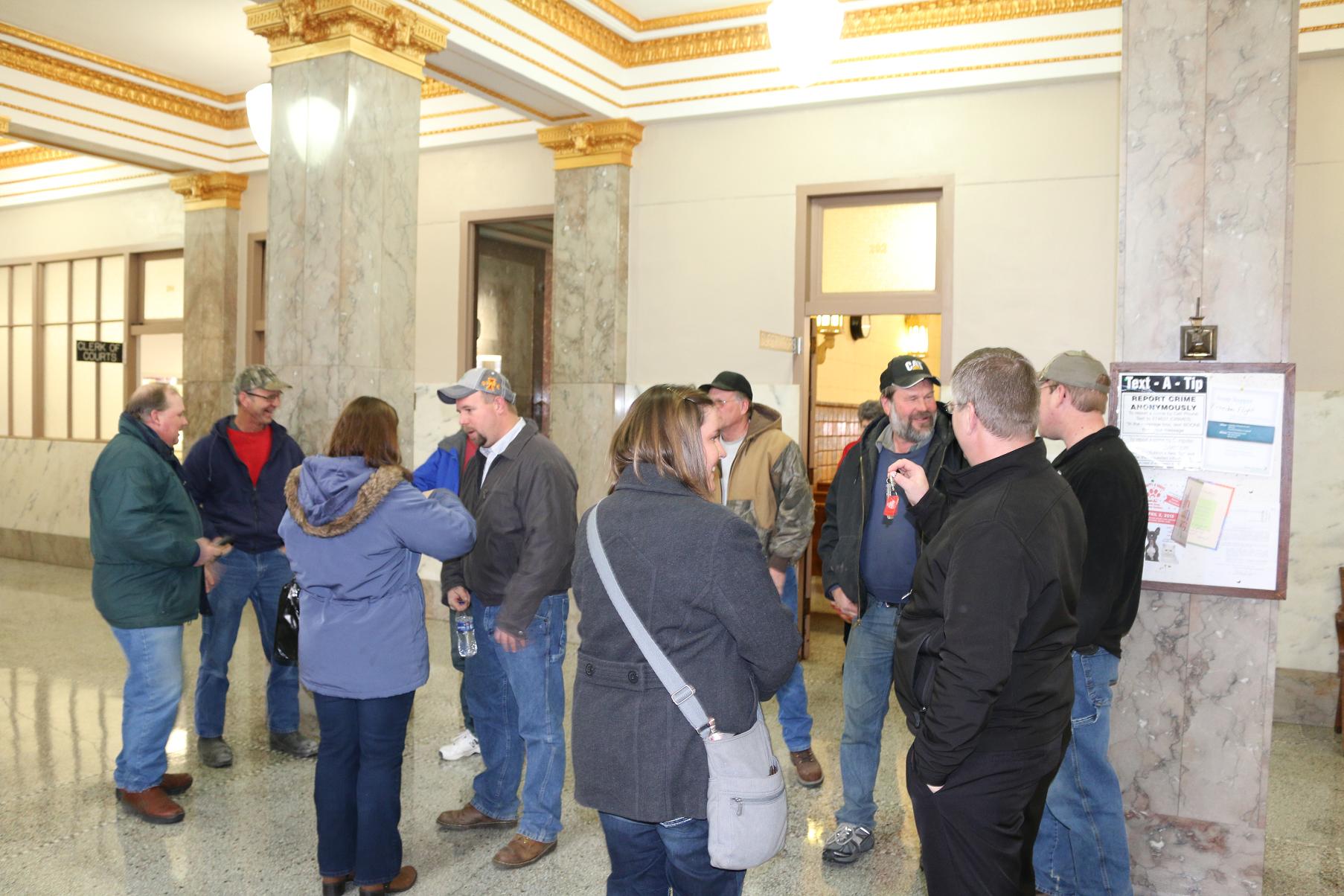








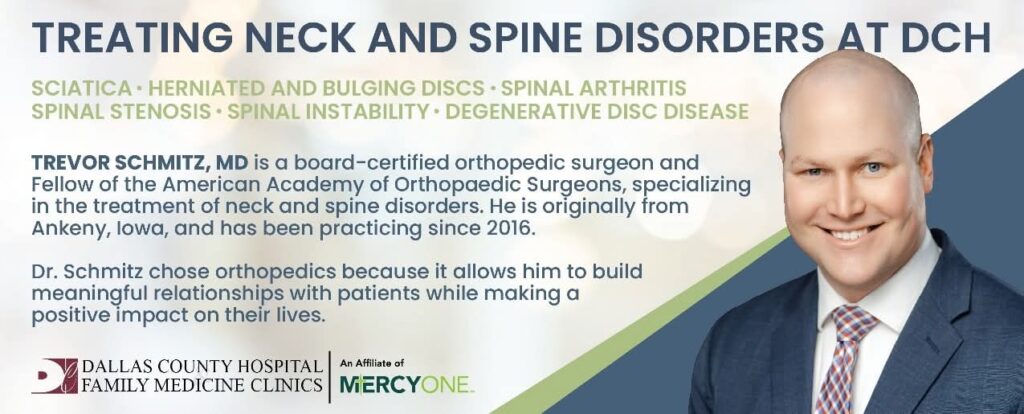
Great article, Jim.
Thank you, sir. It seems to me like an important issue to readers of ThePerryNews even if they live in Dallas County.
It is important that local papers cover these types of issues as they affect us all no matter which side of the county line we reside on. This article in particular deserves praise as it captured the frustration expressed by the residents and the critical issues which have not been resolved. Thank you.
Thank you for such a fair and accurate representation of this hearing. I was really disappointed in this process and the level of ethical responsibility that was exhibited by the reviewers. No one should have been there to decide whether someone was a nice person or whether anyone’s relatives had died from stink. The chairman speaking about his own bias on the matter (“as a citizen”) was staggering. No wonder people think politicians are self-serving idiots. It should have been about the data. Considering we discovered these people taking final measurements at 4:40 on Tuesday (the evening before this hearing), I don’t see how any data was properly reviewed. It makes me doubt that this matrix was taken into consideration at all. It seems to me that it is just another example of the good ol boys club.
By the way, I’m not actually an opponent of hog confinements. I’m just an opponent of them being done improperly. There are a lot of family farms in the area that I champion. This is NOT a family operation. This is simply mega-ag contracting being done by someone who may still need to develop the skills on how to properly, carefully handle the responsibility it takes to do things in ways that are transparent, respectful, and unimposing to surrounding residents. Cargill may be paying them to put up with it on their farm, but they aren’t paying us to put up with it.
Thanks,
Sally Black
[…] have made include $100 to Republican Chet Hollingshead, the former Boone County supervisor who later made news for mocking opponents of a new hog confinement. The rest of their donations have gone to Democrats: […]
[…] have made include $100 to Republican Chet Hollingshead, the former Boone County supervisor who later made news for mocking opponents of a new hog confinement. The rest of their donations have gone to Democrats: […]